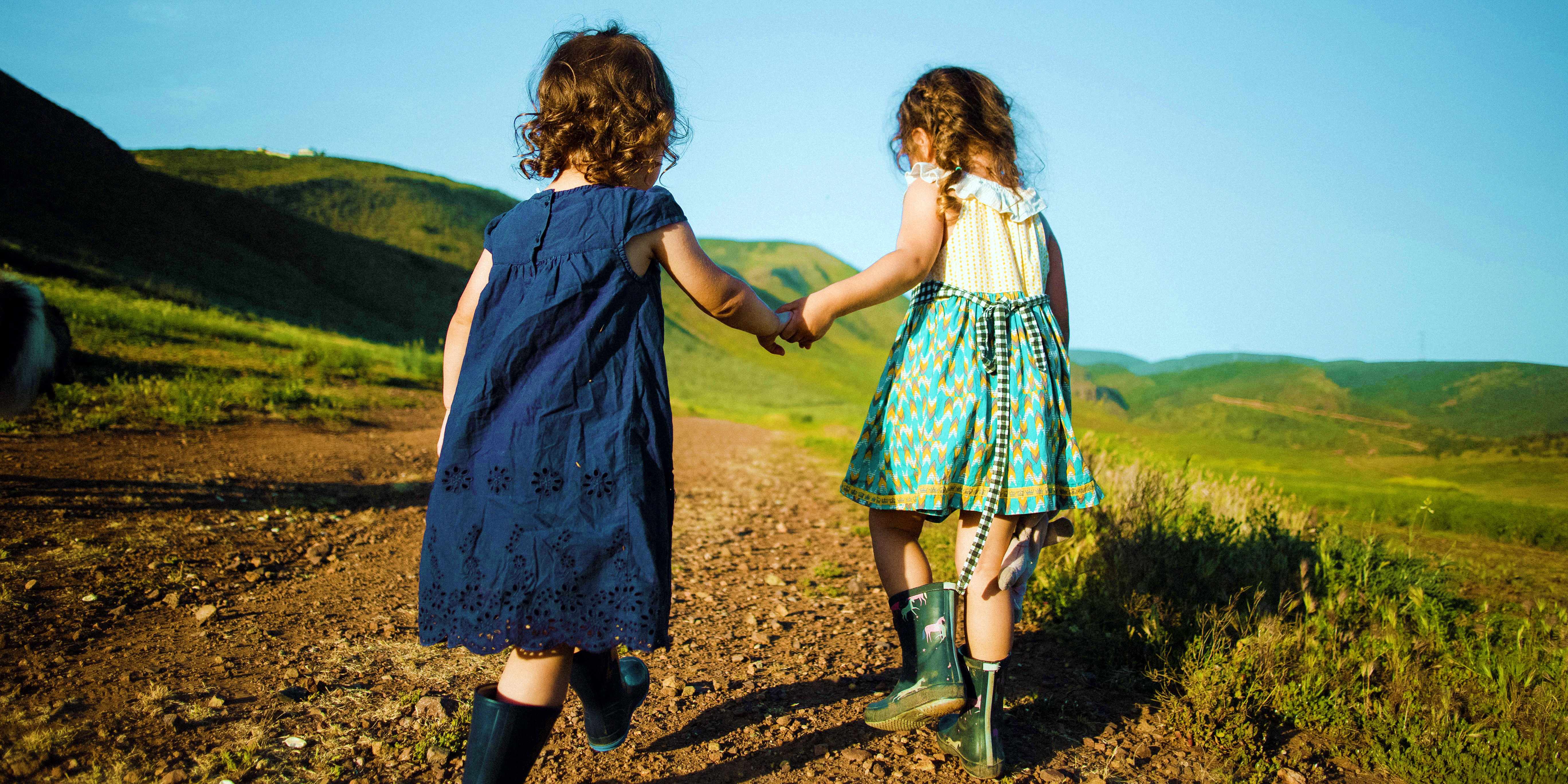Mental Health Awareness Week 2021: how being close to nature can help with bullying

Today marks the launch of Mental Health Awareness Week. The week, which is hosted by the Mental Health Foundation, is in its 21st year and runs from 10th – 16th May. This year, the theme for the week is ‘Nature’.
Nature is an important asset in both the prevention and recovery from bullying. Here, our Parent Support Manager Kat Fuller explores some of the ways being close to nature can make a difference to children and parents' mental health.
Nature in schools
The benefits of outdoor learning experiences are plentiful. Research commissioned by the Wildlife Trusts and carried out by the Institute of Education at UCL (2019) found that “Learning outdoors for just one lesson a week boosts learning and behaviour in primary school children”. The study focused on over 450 primary school children and found that alongside improvements in academic achievements there were also notable improvements in self-esteem and relationships with peers. These are important factors in the prevention of bullying.
Other benefits of outdoor learning and time outside include:
- The opportunity to engage in different learning experiences outside the classroom, which may appeal to those children who struggle with more academic work.
- Increased wonder and fascination at the natural world.
- Increased empathy.
- An outlet for physical energy.
- Opportunities to develop teamwork.
Nature in our daily life
I strongly believe that nature is, and always has been, a powerful tool in my parenting toolkit. Getting outside with a tiny newborn was hard but did all of us the world of good. And now…a hard day at school – walk in the forest. Too much energy – run through the woods. Need to connect with others – family forest school session. Feeling anxious – slow, barefoot steps on the grass (checking it is safe first of course!). Tree hugging optional!
Being outside helps my family to relax and connect to each other, it provides fun, shared experiences. Time in nature is also time away from screens.
Nature to support recovery from the mental health impact of bullying
We know that young people who experience bullying are more likely to develop mental health issues. Time in nature is proven to have a powerful effect on our emotional well-being, and alongside other support can be helpful in recovery from anxiety and depression.
Nature for parents
Bullying affects parents too. Callers to our parent advice line often describe feelings of powerlessness, shame, isolation, and frustration. Without investment in self-care, the strain of supporting a bullied child can soon impact our mental health. Getting outside and undertaking moderate activity can prompt chemical changes in the brain and boost our mood. Getting outside is a free, accessible method of self-care – you don’t need any special equipment.
We recognise that going outside is not as easy as it is sometimes made out to be. There is privilege in access to nature – having safe spaces, free time to spend taking our children outside and being well enough to leave the house. The Mental Health Foundation wants to use this week to challenge the disparities in who is and who isn’t able to experience nature. Nature is not a luxury. It is a resource that must be available for everyone to enjoy.
Our advice would be to start small - put a bird feeder outside the window and watch the birds, read stories about nature, watch nature documentaries, plant a window box.
Some simple ideas for free family outdoor activities:
- Matchbox challenge – take an empty matchbox and compete to see who can fill in with the most ‘nature treasures’ in 15 minutes.
- Paint with water – grab a paintbrush and a pot of water and make art on the patio or the fence.
- Create nature art – use leaves, stones, twigs, petals and make a picture on the ground.
- Go on a penny hike – take a coin with you, set off and when you reach a junction toss the coin – heads you go left, tails you go right.
- For further activity ideas see Things to do outside – Get Children Outdoors! Get Children Outdoors!
- The Wildlife Trust challenges us to do one wild thing a day throughout June: 30 Days Wild 2021 – Sign up for your pack | The Wildlife Trusts
- 1000 Hours Outside is a global movement aiming to match nature time with screen time.
Some of the ways people can participate in Mental Health Awareness Week:
- During Mental Health Awareness Week, why not try to make a habit each day of connecting to nature in your local area? Stop to listen to the birdsong, smell the freshly cut grass, take care of a house plant, notice any trees, flowers or animals nearby. Take a moment to appreciate these connections.
- Share images/videos/or just sound recordings of the nature on your doorstep (and how this made you feel) on social media using #ConnectWithNature and #MentalHealthAwarenessWeek.
- Use Mental Health Foundation resources in your family, school, workplace and community to join with thousands of people who will be finding new ways to connect with nature in their local environment.
For more information about this year’s Mental Health Awareness Week visit mentalhealth.org.uk/mhaw or join the conversation on social media using #ConnectWithNature and #MentalHealthAwarenessWeek.
By Kat Fuller, Parent Support Manager.


